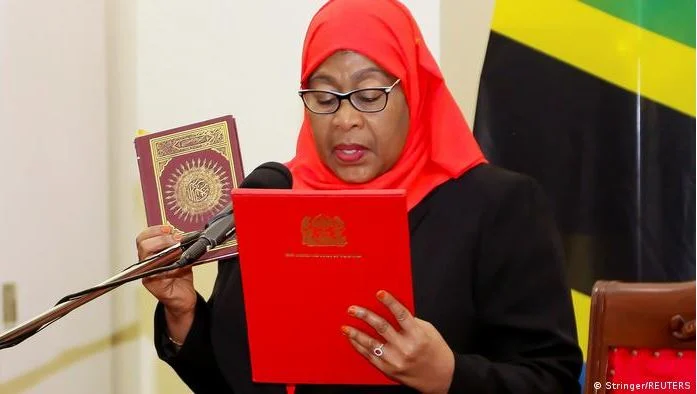Gist
Teenage Girl Brings Baby To Class As Tanzanian Govt Reverses Ban On Pregnant Students

A Tanzanian schoolgirl, Esnath Gideon, has resumed her studies with new hope after the government revoked a verdict against pregnant school girls.
Naija News understands that Tanzania’s former President, John Magufuli, had in 2017 banned pregnant girls and young mothers from attending school.
The development stirred outrage in the country and led to a series of petitions against the government by civil societies, especially the African Women’s Development and Communication Network.
However, following the reversal of the order by the incumbent government, Gideon was able to return to class with her four-month-old baby.
During an interview with BBC, the 19-year-old mother said the government’s new decision has given her hope of becoming a lawyer in the future.
She though lamented that she could not afford a caregiver for the child, but that her teachers had been gracious and accomodating of her baby.
Naija News understands that Gideon is in form four and was happy to resume her studies and let the trauma of her pregnancy behind her.
She told reporters that her grandmother whom she lived with was initially saddened by her pregnancy. She eventually became happy that it would not hinder her from pursuing her dream of becoming a lawyer.
“With the baby in class, my concentration is affected but I’m mostly able to listen. The challenge is when the baby needs a nappy change as there are no places in school where I can change the baby,” Gideon reportedly told BBC.
Naija News understands that no fewer than 1,500 pregnant girls were expelled from schools in the Mbeya district of the country in 2017 when the government initially issued the ban.
According to Human Rights Watch, more than 55,000 pregnant teenage girls were expelled from school between 2003 to 2011.
However, when President Samia Suluhu, the country’s first female President assumed office, she reversed the ban in November 2021.
So far, 240 pregnant school girls have returned to a special classroom and have been placed under a programme that would allow them to cover the syllabus in a shorter time.












